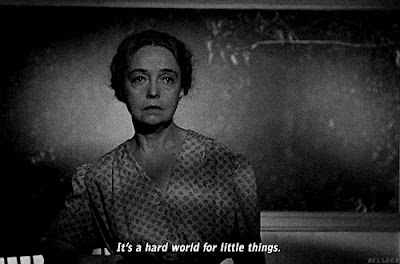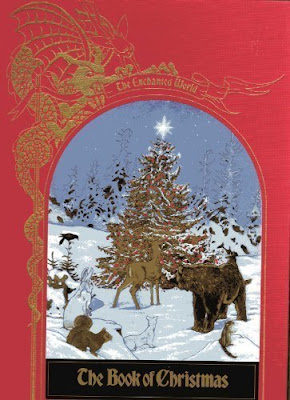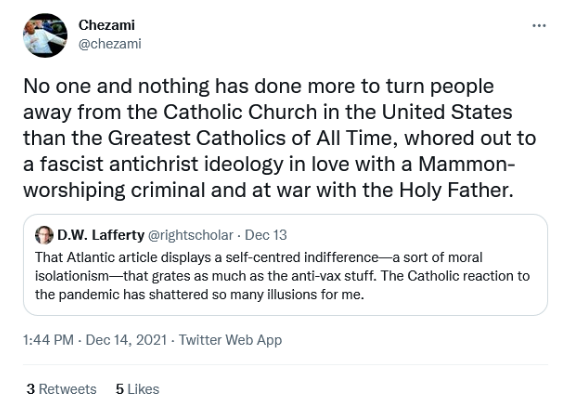In no particular order. There are plenty of songs not on this list that I love to hear. On a different day, those might have been on this list. Today, however, it's these. Generally, on most days it would be most of the below songs.
O Holy Night - This was a song I don't recall hearing much growing up. Remember, I didn't grow up in church. One day my parents were watching a television special. It was none other than the man with the golden voice himself, Casey Kasem. In those days, American Top 40, hosted by Mr. Kasem, was required listening, just to make sure you weren't missing out on a song everyone else was buying. This time, the special my parents were watching was a top ten list of greatest Christmas songs ever, narrated by Casey Kasem in the requisite Christmas setting with tree and fireplace. The list itself was subjectively gathered no doubt. This song was on the list. For its segment, Kasem related a story echoing the Christmas Truce in WWI. The story took place in the Franco-Prussian War, when a French soldier stopped in the middle of a battle and began singing this song. Soon soldiers on both sides joined in. Then it was over, and the battle resumed. Many men would die that night, so said Kasem, as only he could in that smooth, rich voice of his. That made an impact on me, and I never hear the song that I don't think of that story. Despite the spiritually uplifting lyrics, it always leaves me a bit sad, and a reminder that Christmas is best appreciated by a fallen world, not a world that imagines itself beyond the need for anything it can't grasp itself.
Coventry Carol - In 2015, Nationwide Insurance aired what many consider to be the worst Super Bowl ad of all time. It featured a dead child narrating his death in order to bring awareness to preventable accidents. Nationwide wanted to 'start a conversation', which it did. Just not the one it wanted. That's because in our high tech, STEM saturated world, we draw a thick line between the reality of life and the rather isolated, unreal version that comes to us courtesy of the Internet, Hollywood, streaming services, and other forms of distraction. This is encouraged, since people with lives rooted in lofty matters and real world priorities make lousy consumers. So it shouldn't be surprising that the version of Christmas so many Americans inherited, courtesy of Sts. Macy, Woolworth, and Rankin and Bass, favor strongly the Currier and Ives, Hallmark, Madison Avenue version of Christmas; not so much the Matthew 2.16-18 version. In fact, upon becoming Catholic, I was taken by how many feast days of Christmastide center around a martyr for the Faith. The Christmas story was a nasty business: Poverty, homelessness, tyranny, military coercion, and death, with only that ray of Light pointing to our much needed salvation to bring hope. Now pass the eggnog and listen to this traditional tune and find a greeting card to match the theme. I dare you.
I Heard the Bells of Christmas Day - I've always felt this sums up the plight of Christian pilgrims in this strange land of the World as well as any Christmas song ever. Most know that the lyrics are based on the Longfellow poem Christmas Bells. It was written during the Civil War, and reflected the feeling of hopelessness before the ravages of war, yet with the hope of salvation for mankind that only the God can bring. It wouldn't be set to music until a decade or so later. Since then there have been a couple different arrangements, though I'm fondest of the original. In my son's classes, they're taught that there were no good guys in the American Civil War, except slaves and freed slaves. Both sides were racists bent on bigotry and genocide. Such a view would have seemed strange to Longfellow, or most in the day. Heck, it would have been strange until about my time, when professors in the 1980s were already trying to find ways to make it about slavery (bad South), but not about Slavery (bad North). Somehow they figured out how to make it work so a generation today is sure no American side of anything can be divorced of its total, all defining evil. In such an age, perhaps, when the sum total of our entire civilization is under assault, maybe it's time to pay more attention the lyrics of this old standard.
Feliz Navidad - What can I say? Despite my appearance as a somewhat dour pessimist, I'm a sucker for exuberance. How can any human being hear this song and not smile? The pure, utter joy that José Feliciano exudes when he performs this makes you want to jump up and cheer. I remember this becoming a big song and, believe it or not, some folks in our rather homogenous little Anglo-white community were none too happy about a 'Hispanic' (we'll go with that term) song intruding its way into the 'classics' - like Rudolph, Frosty and the like, which seemed OK. Yes, Virginia, America is full of people who can often be good and bad. Thankfully the more open of the town won out, and soon this was a frequent part of the seasonal lists. It was especially a favorite among the Spanish classes. By the time I was in high school, one of the annual traditions was Mrs. Clause's Spanish class going around the school, into the classrooms, and performing this gem. With all of that, plus the sheer happiness in Feliciano's performance, I could never have a list that didn't include this.
Sleigh Ride (Instrumental) - In the end, the instrumental version of this song composed by Leroy Anderson is more or less a muzak take on an old standard. But what a muzak version it is! There are few times in which an instrumental or orchestral version of a popular song will surpass the original song. But this is one of those times. And it surpasses the original song by leaps and bounds. Like the original Christmas tune, there are many different versions by many different conductors and symphonies. But it was Arthur Fieldler and the Boston Pops who first recorded the instrumental, and it's their version that remains hands down the best ever. When this comes on the radio, you can't help but perk up and get ready for a glorious few minutes of one of the best instrumental versions of a popular song ever.
We'll Sing You a Christmastime - What? What is this song? Most I know have never heard of this. But when my wife and I were first married, we received some Christmas cassette tapes for gifts. One of them was a collection of old Christmas standards with newer interpretations by a wide range of artists. And it had this, an upbeat and lively tune that weaves a secularized celebration with decidedly Christian religious references. The first year we played this happened to be the first year we were living in our own home with our oldest son at Christmas. It would be the first Christmas that he could grasp, being a year and a half old. He liked this song whenever it played, dancing about and smiling while wearing his little Santa hat. The next few years he would like this, until it was replaced by Johnny Mathis's version of Sleigh Ride as his favorite childhood Christmas song. Perhaps it's because of that 'first years as an official family' memory, but my wife and I still smile when we hear this played. We take a little trip down memory lane with our oldest and the other boys, and relive a little of that bittersweetness that is parenthood as we think about our children through the years.
O Little Town of Bethlehem - A song my mom always liked. Early on she pointed me to this song, and so from an early age I paid particular attention to it and its lyrics. The tune itself is wonderful, and combines a haunting melody with a sense of longing; one that makes you wish you were there all those ages ago in that small village. The lyrics somehow manage to weave the cosmic nature of the Divine and the supernatural act beyond our five physical senses, with us puny mortals who are so often unaware of what God is up to. Sometimes I think in the glitter and glamor and shininess of our modern age, we can completely miss that still, small voice. One of my sons has pointed out that it was the Industrial Revolution that made second hands on clocks so indispensable. Once that happened, existence became a matter of hourly ledgers, and so did God. There are still parts of the world where this is not true. In those areas once called Third World, for instance, people get to church when they get there, and will worship for hours until they are done. In some parts of the world seasons like Christmas last for months on end, with no particular care about time. Even in Orthodox churches, Divine Liturgy, if combined with Matins, can last three to four hours a Sunday. This song reminds me of a world where such observations would have been the rule, not the exception.
Another Auld Lang Syne - Yes, it seems tacky to put a sappy song like this on a list of such heavy hitters. But it evokes like few songs do, at least where nostalgia is concerned. Plus I can personally relate, as I'm sure most can at one point or another in their lives. The song tells the story of Dan Fogleberg running into an old flame one night and spending a few hours visiting together until parting ways. Like most no doubt, I had something similar happen to me once. It was after the birth of my third son. As it happened, I was in one of my ascension moments in life. Things were looking good, I was in pretty good shape for a mid 30 year old dad. I was Christmas shopping at the big Barnes and Noble on Polaris. Someone called my name and I turned around. It was a girl from my high school days. She was a cheerleader back then, the thongs of whose sandals I was unworthy to untie. Now she was a nurse. And, for reasons I'll never understand, single to this day. She hugged me and we talked for a brief time. She actually said I looked great which, even then in my life, took my breath away. Only 'Well done, thou good and faithful servant' could have had a bigger impact. Of course Father Time had been kind to her as well. We went through the checkout line talking of old times, got our purchases, then went our separate ways in the parking lot as it began to rain. That year being one of a string of Decembers where we trudged through snow all month, only to see it turn to rain before Christmas. I don't hear this song that I don't think of that, and the rush of memoires of youth and childhood that invariably accompany it. Hence it's place on the list.
I Saw Three Ships - An odd one for such a list. Not many top lists I've ever seen have this. There is a reason for it being here, however. As I'm sure you've figured out, I typically have reasons for most things I like. I seldom 'just like' something. I had never heard of this song until first grade. Then at Christmastime we learned about various carols as we sang them in our class. We learned Away in the Manger, what lowing cattle were, and a manger, and all the trappings. And we learned this carol as well, and how it taught the Trinity in recounting the basic story of Jesus and Mary. The three ships being a Trinitarian reference. That's secular first grade by the way. I don't know when it happened, but overt references to Christianity were already disappearing by the time I entered middle school, c. 1980. We still had Christmas Break, but by high school, that was replaced by 'Winter Break' and our annual homeroom door decorating contest became a 'Holiday' decorating contest rather than Christmas. But in that Christmas season of 1973, we still learned Christmas songs by name, heard the basics of the Christian faith taught, and heard the holiday wrapped up in the swaddling clothes of Jesus in a manger. Whenever I hear this song, I think on that and just how far and how fast we've come.
The Christmas Song (Nat King Cole version) - This was my parents' favorite song, or at least my dad's. To them, it wouldn't be Christmas unless this song, performed by Mr. Cole, was on the radio. The song was one of many written by Jewish songwriters wishing to capitalize on the new commercial frenzy that was Christmas, without pointing directly to that babe in a manger. Last year I saw part of a special on PBS that was all about this fact - that many of those 'commercial hits' were purposefully composed. Those who were interviewed, including various Jewish songwriters, didn't seem to hold back. They absolutely wanted to make bank on this, but weren't about to promote the Christian element of the music. The more people they could get to focus on snowmen and reindeer and chestnuts, rather than angels, mangers and Saviors, the better. I guess kudos for honesty. There are a few things about the Orthodox Christians I sojourned with that I admit I liked. One was they don't suffer from 'Victor's Guilt' as we do in the West. In their long, torrid, tangled history, there were times of oppressing minorities. And there were times those minorities, including Jewish leaders, aligned with others to oppress them. So while they may mourn and repent of the evils done by the Church in history, they don't forget the evils done to the Church, sometimes by groups that in the West have ever and always worn the badge of oppressed minority. So when things like this happen, they will call it out, rather than be like us in the West who shuffle our feet, cast down our eyes, and let anything happen to our Church for the guilt of it.
Silent Night - Perhaps the Christmas song against which all Christmas songs are, or should be, measured. I remember learning the story of its composition around Christmastime in second grade. Again, different world. It was a favorite of my grandmother on my mom's side. It was the goto song we sang when we sang such tunes in school. It's often the goto for anyone wanting to play an especially Christian song during the season. I remember the first year I heard Rush Limbaugh. I caught his sign off right before Christmas Eve. While giving his goodbye for the year, he had this song on in the background, played by Manheim Steamroller. In his talk, he rightly said that no other song captured the true spirit of Christmas and what Christmas is all about. How much of it made a difference in Mr. Limbaugh's life, I can't say. I know he hit it right on the nose, however, and I never hear this song without being swept away in my mind to a late night on the other side of the world all those centuries ago.
Carol of the Bells - As a lad, I remember some store at Christmastime with a commercial that had this as the background music. An instrumental version at least. I can't remember the company. Some woman was shown behind a frosted window and then she turned and pitched the sale, with the music faintly behind her. The product is long forgotten but, as a lad, that song meant Christmas was coming around the corner. Plus, my mom once said she placed this, along with What Child is This and O Little Town of Bethlehem, as among her favorite Christmas songs. So I learned to play it on the piano for her (tougher than it looks), and the tune and the season just became one. It got bonus points when I saw it was Ukrainian, a far away and exotic name for me back then. It was when I got my first game of RISK that I learned the basic region in which Ukraine was located (same with Kamchatka). But a reminder that Christmas was not just an American, or even Anglo-American phenomenon. It may sound silly, but living outside of the Church's walls can make certain simple truths easy to overlook.
Honorable Mention: White Christmas - The biggest song of the 20th Century. For a brief moment of terror, the vomit inducing England's Rose, written by Elton John for the wealthy and celebrity studded funeral of Princess Diana, overtook that title. But early in the 21st Century, perhaps from attempts to turn the clock back following 9/11, I saw on the news that sales of this song once again overtook that cheap imposter and became the biggie of the century. Fair enough. It is about as 'American Christmas' as you can get. It was written in that mid-Century when America was at once making everything American, and also getting ready to jettison the same. In some ways, in an odd tangled mess of things, it makes sense that the biggest song, Christmas song that is, would be one having little to do with that Babe in a manger. Just as England's Rose was a celebration of a superstar celebrity whose personal shenanigans were as big as any charitable work, and whose death brought the wealthiest and most powerful in the world to pay respects. About that time, St. Mother Theresa also died. Her funeral was attended by thousands of society's lowliest, the poor, the diseased, the hungry. Few Hollywood superstars or media moguls attended that little service. But the ones who Heaven casts its eyes on the most were there. At some point, America decided where its prioirties were, and this Christmas standard echoes those priorities nicely. The question is, should we continue clinging to that priority set, as so many of us American Christians have done?



















